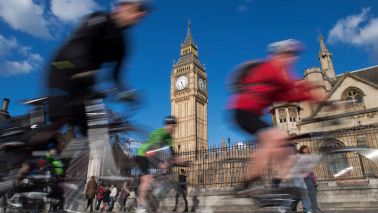As an international lawyer, splitting my time between London and Brussels, I dare say I might be considered one of Theresa May’s ‘citizens of nowhere’. Nonetheless, as the protests about the Israeli response to the atrocities committed by Hamas on 7 October have become more strident and legally problematic, I have also had cause to reflect on my heritage as a dual British-Israeli national.
Much of my mother’s side of the family arrived in Israel from Bukhara (then part of the Russian empire, now modern-day Uzbekistan) at the end of the nineteenth century. They were prosperous silk traders who originally settled in the Bukharan Quarter of Jerusalem, following pogroms in Russia. When I was young, I was taken to see a community building that my family had established in Jerusalem in 1902.
Most Israelis see it as calling, not only for the destruction of our country, but also for a genocide
The October Revolution of 1917, and the subsequent rise of communism, meant that they could never return.

Britain’s best politics newsletters
You get two free articles each week when you sign up to The Spectator’s emails.
Already a subscriber? Log in






Comments
Join the debate for just £1 a month
Be part of the conversation with other Spectator readers by getting your first three months for £3.
UNLOCK ACCESS Just £1 a monthAlready a subscriber? Log in